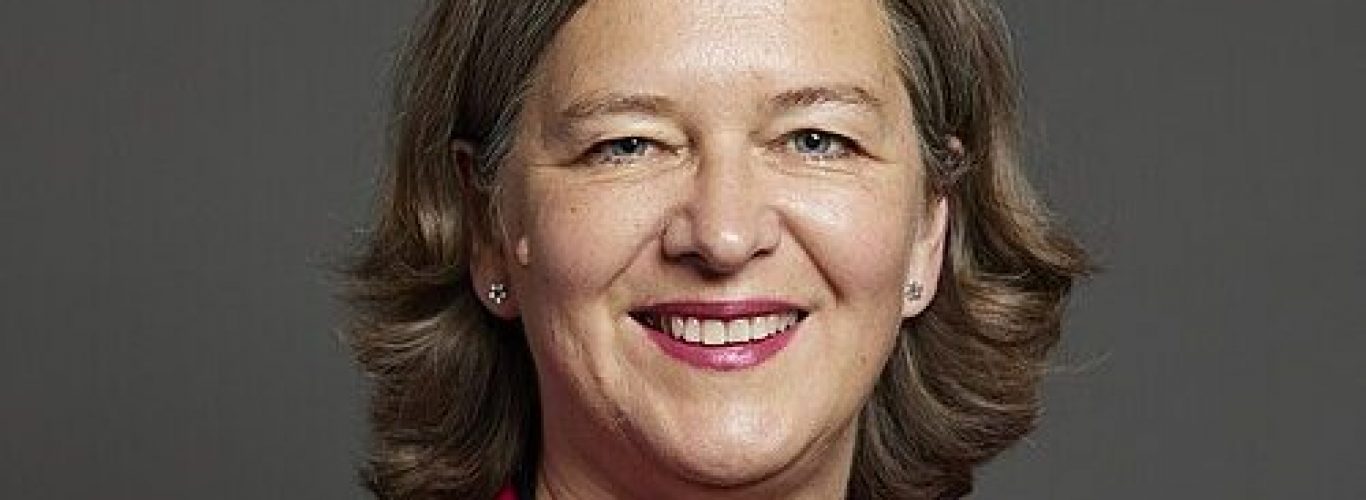It seemed a perfectly logical assumption to me…
Asked in an interview with the Agenda NI publication whether opinion polls would form part of the decision-making about calling a future border poll, Northern Ireland Minister Fleur Anderson (Hillary Benn’s deputy) confirmed that, yes, ‘it would be based on opinion polls.’
Commendably clear and straight-forward.
However, Ms Anderson’s candour was quickly corrected by the Northern Ireland Office, reciting the now familiar refrain that ‘responsibility for a referendum sits solely with the Secretary of State.’
Yes, but that’s the ‘how.’ What we are interested in is the ‘why.’
Why will a poll be held (or not as the case may be). What are the key factors? It is decreasingly plausible for Hillary Benn to behave like some mystic from the ancient world, who alone must decree if and when it can happen.
Of course, the reality is that the eventual decision will have little to do with him at all. The British prime minister of the day will decide, together with the cabinet, and in conjunction with their Irish counterparts, (perhaps mindful of a legal challenge that may compel them to call one).
But what else will inform the decision?
I’ve argued before that official criteria for calling a border poll are not necessary. Amajority of the popular vote for united Ireland-supporting parties in the next assembly and local elections, in 2027 and 2028 respectively, would suffice and be too powerful a symbol to ignore. This, then, is the next big moment.
Sure, throw in a few opinion polls as well for good measure, however the exchange rate means that real votes in real elections count for more than surveys.
And when all is said and done, the realpolitik guiding the calling of a border poll isand always has been pretty straightforward a) Can it be won cleanly and b) Is Dublin up for it? When these considerations have been met, a British government could move far more quickly than anyone imagines.
So, what are we to make of Ms Anderson’s remark? I work on the assumption that when politicians ‘misspeak’ and say something deemed to be unhelpful by their own side, then it reflects what is at the front of their minds.
It would not surprise me if the Northern Ireland Office is conducting its own research into public opinion, trying to glean what will happen in the next assembly and local elections.
Better, I would argue, to be upfront about it.
The two governments should establish a fund to pay for a range of quarterly tracking polls. Allow various pollsters, with different methodologies, to provide fresh insight into if and when the public are ‘likely’ to countenance a change in the constitutional firmament.
Surely no-one has anything to fear from a bit more light being shone on this issue.

It seemed a perfectly logical assumption to me…
Asked in an interview with the Agenda NI publication whether opinion polls would form part of the decision-making about calling a future border poll, Northern Ireland Minister Fleur Anderson (Hillary Benn’s deputy) confirmed that, yes, ‘it would be based on opinion polls.’
Commendably clear and straight-forward.
However, Ms Anderson’s candour was quickly corrected by the Northern Ireland Office, reciting the now familiar refrain that ‘responsibility for a referendum sits solely with the Secretary of State.’
Yes, but that’s the ‘how.’ What we are interested in is the ‘why.’
Why will a poll be held (or not as the case may be). What are the key factors? It is decreasingly plausible for Hillary Benn to behave like some mystic from the ancient world, who alone must decree if and when it can happen.
Of course, the reality is that the eventual decision will have little to do with him at all. The British prime minister of the day will decide, together with the cabinet, and in conjunction with their Irish counterparts, (perhaps mindful of a legal challenge that may compel them to call one).
But what else will inform the decision?
I’ve argued before that official criteria for calling a border poll are not necessary. Amajority of the popular vote for united Ireland-supporting parties in the next assembly and local elections, in 2027 and 2028 respectively, would suffice and be too powerful a symbol to ignore. This, then, is the next big moment.
Sure, throw in a few opinion polls as well for good measure, however the exchange rate means that real votes in real elections count for more than surveys.
And when all is said and done, the realpolitik guiding the calling of a border poll isand always has been pretty straightforward a) Can it be won cleanly and b) Is Dublin up for it? When these considerations have been met, a British government could move far more quickly than anyone imagines.
So, what are we to make of Ms Anderson’s remark? I work on the assumption that when politicians ‘misspeak’ and say something deemed to be unhelpful by their own side, then it reflects what is at the front of their minds.
It would not surprise me if the Northern Ireland Office is conducting its own research into public opinion, trying to glean what will happen in the next assembly and local elections.
Better, I would argue, to be upfront about it.
The two governments should establish a fund to pay for a range of quarterly tracking polls. Allow various pollsters, with different methodologies, to provide fresh insight into if and when the public are ‘likely’ to countenance a change in the constitutional firmament.
Surely no-one has anything to fear from a bit more light being shone on this issue.